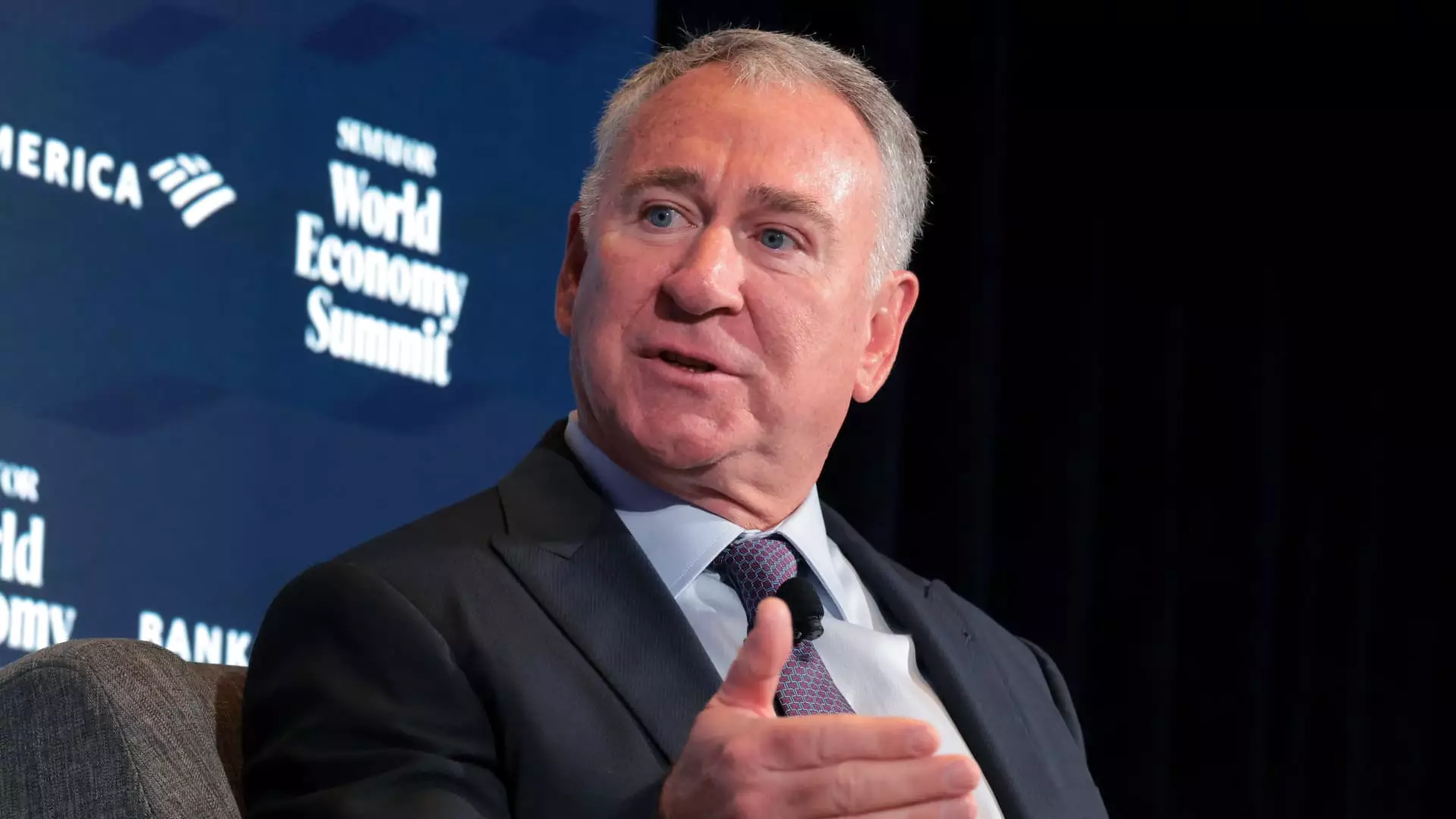Ken Griffin’s recent comments regarding President Trump’s aggressive trade policies should serve as a wake-up call for those who still view American exceptionalism as an unassailable concept. The founder and CEO of Citadel sharply criticized the current administration’s actions, equating the U.S. to a once-powerful brand that is now teetering on the edge of chaos. What Griffin aptly describes as a “universal brand” is more than just a national identity; it’s a profound symbol of stability, aspiration, and power. By initiating the highest tariffs seen in generations, Trump risks damaging the reputation of the United States not merely as a nation, but as a dynamic force in global economics.
The Risks of Volatility
When Trump unveiled his tariffs, market volatility surged, leaving traders and investors scrambling to adapt to a rapidly changing environment. This shockwave was not merely an economic hiccup; it represented a fundamental shift in how global investors perceive the U.S. market. Griffin pointed out that the safety net historically offered by U.S. government bonds is beginning to fray, with the dollar losing favorable ground against foreign currencies. A weakened dollar impacts consumers and investors alike, signaling a broader retreat from American fiscal products as “the safest place to invest.” This momentary volatility encompasses not just numbers on a spreadsheet, but has real consequences for international trade relationships and economic growth.
A Call for Brand Integrity
As Griffin insightfully reminds, the stakes in brand management extend beyond government rhetoric; they encompass the entire economic ecosystem. “When you tarnish that brand, it can be a lifetime to repair the damage that has been done,” he cautions. This isn’t just a flippant remark—it reflects an understanding that brands, particularly one as far-reaching as America’s, require consistent nurturing and integrity-breaking any subsequent trust is perilous. Politicians need to approach trade policy with an intricate awareness of its broader implications, especially when the economic consequences can reverberate across the globe.
The Power of Leadership and Vision
Moreover, Griffin’s critique implies a significant leadership gap in truly understanding the implications of trade policy. It calls for sensibility from those in power, be it the President or key economic advisors. When influential figures regard their nation as merely a transactional enterprise, they risk unfurling a delicate tapestry that generations have woven. Economic leadership should inspire confidence, not fear, in both domestic and international arenas. The bombastic rhetoric that Griffin critiques will only sow discord and uncertainty when what the global market needs is a clear, confident vision.
The Return on Caution
In this complex landscape, the market demands clarity and strategic foresight as opposed to aggressive posturing. Trump’s propensity to provoke through radical tariff strategies not only unsettles the markets but also the traditional basis of American democracy, which champions freedom and collaboration over isolation and antagonism. As future policymakers consider the nuances of trade, they must understand that every decision resonates beyond the immediate fiscal impact; it shapes perceptions, influences investments, and ultimately determines the sustainability of what it means to be American on the world stage.

